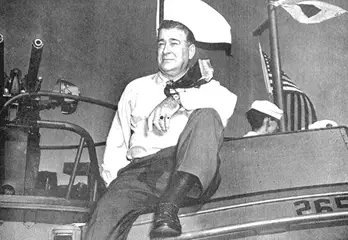How can an auditorium once devoted to atheistic lectures during the old Soviet Union become transformed into a place of worship? First, you must have the fall of the Soviet form of totalitarian government, after more than 70 years of dominance. Then there comes a birth of religious freedom which follows the period of oppression. This new climate of change offers a fresh opportunity for Christians to worship openly and freely.
Recently, while making a missions trip to western Ukraine, I saw the evidence of this transformation first hand. In Rivne, Ukraine, there is a famous meeting hall once used by the Communist leaders for lectures on atheism and teaching other ideological aspects of Communism. This hall is now a place of worship for the fast-growing Grace Church. Grace is only seven years old, and it is a fellowship capably led by a young pastor named Andry. The church has already birthed three other congregations, one just a month ago. This, the newest of the daughter churches, now has approximately 150 worshipers.
On my birthday, March 29, I had the privilege of preaching at the Grace Church. It was their time change Sunday and my second one to experience in one month’s time. Despite the loss of an hour’s sleep, the congregation was most attentive. As I preached, I couldn’t help but think that this was a miracle indeed. A hall of atheism had become a house of worship for the One and True God that the Communist system sought to discredit and eradicate from society.
On the flight home, I read Russian Resurrection, a book which chronicles the evangelical movement in Russia and Ukraine, as well as other former Soviet satellite nations. Reading this work was an informative experience for me, and it verified what I had witnessed personally – namely the fact that during the atheistic regime of Communism the evangelical church continued to flourish. Yes there was persecution and, yes, there were the infamous gulags, where Christians and other so called dissidents were held as prisoners, but this did not stop the sharing of the Gospel with the people of the towns, villages, cities and rural areas.
Near the Hungarian border there are Baptist churches ministering to Hungarian-speaking people who have migrated back to their native Trans-Carpathian region. This language group could be easily ignored because the territory is remote from the heart of Ukraine and the country which speaks their language.
However, there are young pastors there among the people sharing the gospel. One such couple is Pastor Daniel and his wife Lona. They have started a church in a small village in a building which has been slowly renovated for worship. They live in a tiny apartment-like area adjacent to the church. Lona reaches out to the ladies in the village through a quilting ministry, and Daniel effectively preaches the gospel.
During one recent worship service, Daniel preached to a standing room only crowd in the tiny church. Of the more than 60 in attendance, 30 people expressed faith in Christ in that worship service. When the weather becomes warmer, these individuals will be baptized outdoors in a makeshift swimming pool designed to be a baptistry. This kind of public demonstration of faith in Christ would have been very rare in the days of Communism.
I left Ukraine, following my fourth or fifth missions trip with a renewed sense of appreciation and respect for our fellow Christians in that part of the world. We have much to learn from these beautiful and precious people who served the Lord so effectively in times of need and suffering. In general, they do not have much materialistically, but they do have a contagious zeal for the Lord and His ministry in our world. They have experienced a miracle of change, that is freedom to worship, and they understand very well that our God can take adversity and make it an advantage. In other words, a hall of atheism can become a house of grace.


